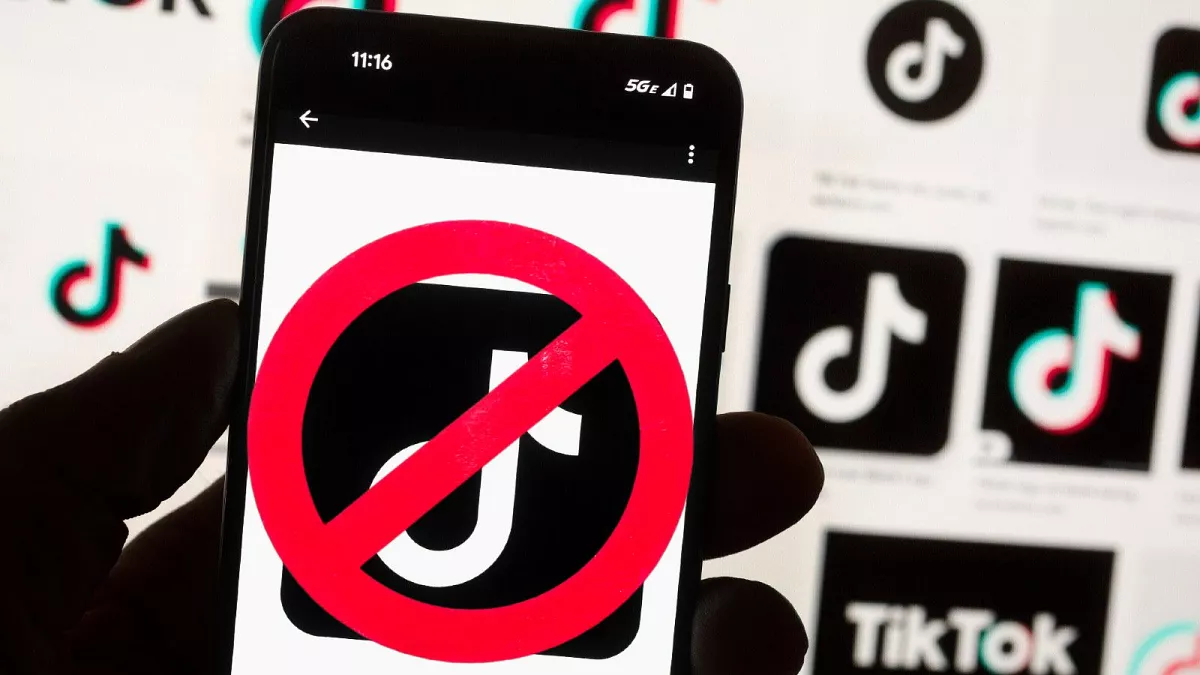TikTok, the biggest streaming platform for vertical videos, has been banned in more than ten countries worldwide. Most of the charges against TikTok can be linked to privacy infringement issues. TikTok has not been able to comply with the rules and regulations stated by most countries and this has resulted in its ban.
The real reasons why they banned TikTok
This is a list of nations that have banned TikTok, along with the reasons given by each: In 2020, Prime Minister Narendra Modi’s government in India banned TikTok and other Chinese apps countrywide. This decision was made after rising tensions and a confrontation at the border. In an effort to protect national interests and user data, the Indian government restricted the use of these apps, including TikTok, citing privacy and security concerns.
Read also: TikTok Introduces text-based content
Pakistan: Since October 2020, the Pakistani government has implemented temporary bans on TikTok no less than four times. People are worried that the app promotes immoral content, which is why it has been banned. The government of Nepal has banned TikTok across the country in an effort to maintain “social harmony.”
The US government has banned federal agencies from using TikTok on their devices and systems due to data security concerns. In addition, several states have made it illegal for state government agencies, employees, and contractors to use TikTok, especially on devices that the government issues.
These states include Texas, Maryland, Alabama, and Utah. In response to bans enacted by individual states, several public universities have instituted policies to limit students’ access to TikTok. Several schools have taken steps to restrict access to TikTok on university-owned computers and campus Wi-Fi networks, including Boise State University and the University of Oklahoma, as reported in the Economic Times.
After the FBI warned about possible national security risks linked to TikTok, Taiwan banned the app in December 2022 within the public sector. Software developed in China, including TikTok, is forbidden on all government-issued devices, including smartphones, tablets, and desktop PCs.
Central institutions of the 27-member European Union—the European Parliament, the European Commission, and the EU Council—collectively banned TikTok on all staff devices. In particular, the European Parliament’s order went out to all members of parliament and staff, advising them to remove the TikTok app from their own devices due to cybersecurity concerns.
Like several other countries, Australia has banned access to TikTok from government-issued devices. Following consultation with national security and intelligence organizations, Attorney General Mark Dreyfus made the announcement. The “extensive collection of user data and exposure to extrajudicial directions from a foreign government that conflicts with Australian law” are the reasons why TikTok gives rise to security and privacy concerns, according to him.
On March 24, the French government implemented a new regulation that would prevent about 2.5 million government employees from installing and using “recreational” apps like TikTok, Netflix, and Instagram on their work phones. The “binding” instruction that imposed this prohibition took effect right away. The personal phones of state employees are not covered by it. Concerns about these social media platforms’ inadequate data security measures led to the decision.
The Taliban government in Afghanistan banned TikTok and PlayerUnknown’s Battlegrounds (PUBG) in 2022, claiming the move was necessary to prevent young people from “being misled.”
What Cybersecurity experts say
Following advice from government cybersecurity specialists, lawmakers and staff at New Zealand’s Parliament are not allowed to use the TikTok app on their work phones. The ban, announced on March 17, impacts about 500 people working in the legislative complex. Rafael Gonzalez-Montero, chief executive of the Parliamentary Service, stated that officials may be exempted from the rule if they need TikTok to carry out their democratic responsibilities.
Read also: TikTok to Experiment with Dislike Button
The UK Secretary of State in the Cabinet Office, Oliver Dowden, announced an immediate ban on the TikTok app for government official devices on March 16. As a preventative step toward “good cyber hygiene,” Dowden justified the action, highlighting the restricted use of TikTok within government agencies. The decision was based on a report from the UK’s National Cyber Security Centre that pointed out possible dangers linked to specific platforms and sensitive government data. Critics voiced concern over the delay in banning TikTok compared to allied nations, even though the country was an early adopter of restrictions on other Chinese-owned technologies, such as Huawei.
Concerned about cybersecurity, privacy, and disinformation, Belgium has banned TikTok from official government phones. According to the announcement made on March 10, the federal government of Belgium has banned, for at least six months, the use of TikTok on devices that are owned or funded by them. State security service and cybersecurity center warnings about risks like data harvesting and algorithm manipulation were the basis for Prime Minister Alexander de Croo’s justification of the ban.
On February 28, Canada announced that all government-issued devices would not be able to access TikTok, following the US lead. The country cited an “unacceptable” risk to privacy and security as the reason for the ban. In the future, employees will also be unable to download the app on government devices because of the ban.




